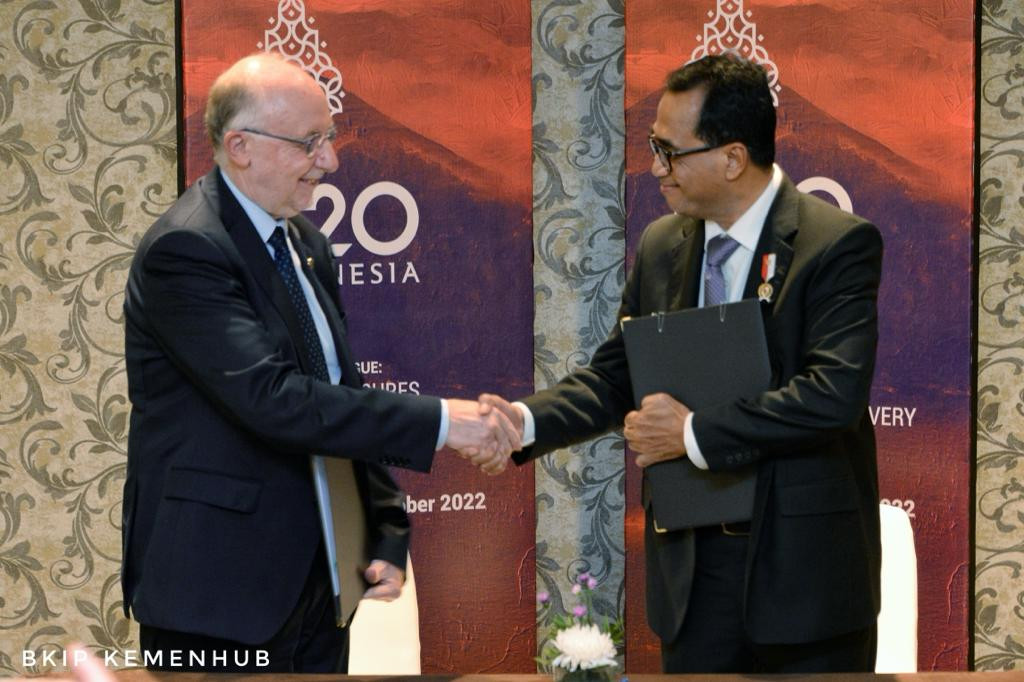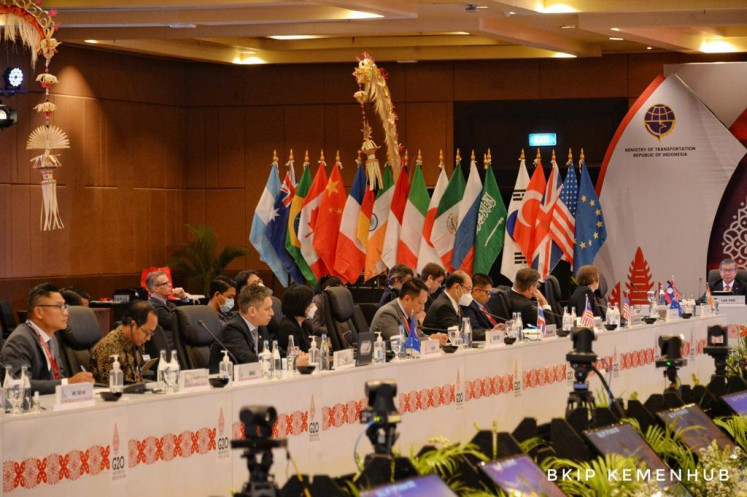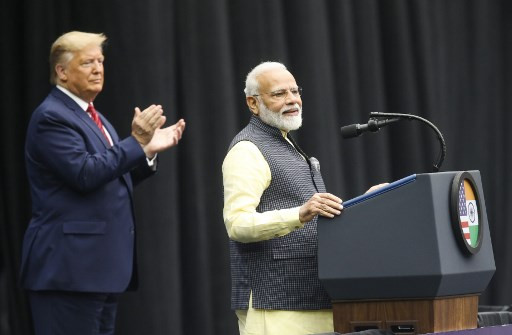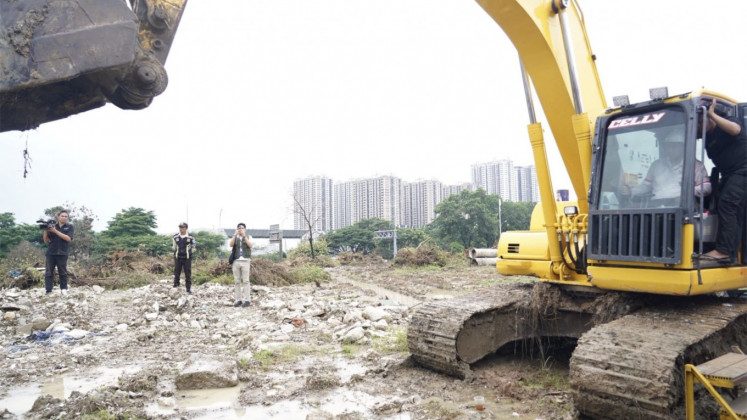Popular Reads
Top Results
Can't find what you're looking for?
View all search resultsPopular Reads
Top Results
Can't find what you're looking for?
View all search resultsICAO lauds Indonesia’s commitment to recover aviation industry
Change text size
Gift Premium Articles
to Anyone
T
he Transportation Ministry hosted the Aviation Dialogue themed “Financial Measures for Aviation Recovery” from Oct. 18-19 in Nusa Dua, Bali.
The dialogue brought together commercial aviation stakeholders and businesses to discuss efforts to recover the industry from the COVID-19 pandemic and the severe impacts of worldwide travel restrictions.
During the event, the International Civil Aviation Organization (ICAO) applauded Indonesia’s commitment to restoring the national aviation industry.
“This is what brought me here: Indonesia’s role in bringing attention to aviation issues during Indonesia’s presidency of G20,” ICAO president Salvatore Sciacchitano told the dialogue participants on Tuesday.
Sciacchitano acknowledged that the COVID-19 pandemic had massively impacted the commercial aviation industry. For example, pre-pandemic figures showed that the global industry had recorded around 4.5 million air passengers per annum. After the pandemic emerged, the figure slumped drastically by 60 percent.
“Other countries closed their air travel, but the Indonesian government provided full support and actively pursued recovery,” he noted.
Sciacchitano also welcomed the recent signing of the Comprehensive Air Transport Agreement between ASEAN and the European Union, which was expected to accelerate efforts to recover the aviation industry in Southeast Asia, Europe and across the globe.
“From Europe’s experience, the liberation of aviation will open more opportunities and a more competitive climate,” he said.
On the sidelines of the dialogue, Sciacchitano and Transportation Minister Budi Karya Sumadi signed an MAO on providing training and assistance to other countries in need of skilled human resources in the aviation sector. The program is to run until 2026 as part of the United Nations aviation agency’s commitment to “No Country Left Behind”, a project aiming to produce qualified aviation workers to ensure the safety and security of all civil flights.
Coordinating Maritime Affairs and Investment Minister Luhut Binsar Pandjaitan attended the dialogue virtually. Speaking to participants via video link, he underlined that the aviation sector was vital to encouraging growth in the world economy.
Luhut highlighted the four main priorities that were key to the industry’s recovery. The first was to accelerate the recovery of safe and efficient air connectivity for tourism and trade, and the second was to restore the sector by focusing on sustainability and environmental issues. The third priority was to encourage enhanced cooperation between countries, financial institutions and the private sector, while the fourth was to exploit digital and technological innovations.
"I encourage this forum to discuss the opportunities and challenges facing the aviation industry in relation to aircraft financing and leasing," the senior minister said.
In addition, the Transportation Minister also witnessed the signing of an MoU between the Transportation Human Resources Development Agency (BPSDM) and the ACI (Airports Council International) on improving the performance of Indonesian airport workers.
The event also saw the establishment of two other MoUs between state-owned AirNav Indonesia and the International Air Transport Association (IATA), and between AirNav Indonesia and the Boeing Company.
This article is published in collaboration with the Transportation Ministry of the Republic of Indonesia.











